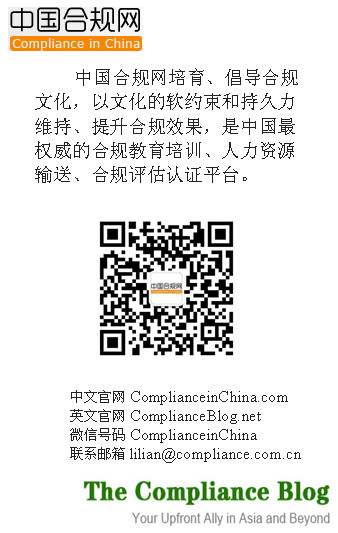China’s ongoing investigation of GlaxoSmithKline (GSK) for alleged commercial bribery has widened to include senior management and doctors at some Chinese hospitals who may have accepted bribes, a pharmaceutical regulator source in Shanghai has told PaRR.
The police are investigating Chinese hospitals selectively, focusing on cases involving potential large-scale bribery to create a “deterrent effect,” said the source, “it is not realistic to investigate every single person involved.”
Police in charge of the investigation are verifying testimonies from hospital staff, adding to the time required to conclude the investigation.
There are signs that China may be putting more effort into pursuing those in the medical sector who accept bribes. As PaRR reported earlier, two senior officials from the Centre for Drug Evaluation (CDE), which is affiliated to the China Food and Drug Administration (CFDA), are apparently being investigated by police in Beijing over their possible acceptance of bribes. So far there is no evidence that the investigation of the two officials is linked to the GSK case.
Police officers on the task force dealing with the case in Shanghai and in Henan province declined to comment on its progress. Another officer in the city of Changsha also refused to comment, but confirmed that the case is still under investigation and revealed that the authorities had released some people arrested earlier who had assisted in the investigation.
Industry sources said they expect the entire GSK investigation, led by the Economic Crimes Investigation Bureau under the Ministry of Public Security, could wrap up by the end of this year at the earliest, but that there are still disagreements over whether GSK will be charged for corporate bribery or whether only its executives in China should be charged.
A professor at the People’s Public Security University of China who specialises in economic crimes investigations said recently in Shanghai at a closed-door meeting that the risk of GSK being charged as a legal entity cannot be ruled out, three people who attended the meeting told PaRR. GSK’s management, whether Chinese or foreign nationals, could therefore face charges in the case, the three people said.
But a GSK distributor who was detained by the police for questioning and later released told PaRR that the chances of GSK being charged were slim, based on his observations when assisting the police with their investigation.
His opinion was echoed by lawyers.
“Even though the Public Security Bureau has attempted to link the allegation of bribery to the company, it seems that it is hard to find solid proof,” said one lawyer in Shanghai.
Henry Chen, a partner at MWE China Law, said whatever evidence the police have is the key to the strength of China’s case.
“As long as there is proof that the company’s decision-makers are involved in corrupt practices, and they systematically carried them out in the name of the company, and that the company rather than individuals was the beneficiary, GSK may be charged,” Chen said. “If there is proof that senior UK supervising executives knew about criminal activity, they can’t shrug off the possible liability.”
When asked about the penalties that GSK might face, company spokesman Simon Steel said: “The investigation is ongoing and we are fully co-operating with the authorities. As such, we are unable to comment further at this stage.”
Attorneys said the specific fines imposed on GSK would be determined by the scale of the bribery involved.
In Hunan province alone, GSK would be denied access to the pharmaceuticals market for two years if it is charged with corporate bribery, said Yu Xinwei, a discipline inspector at the province’s Health Department. Pharmaceutical categories on Hunan province’s procurement list would also be eliminated, Yu said.
**
Policy and Regulatory Report (PaRR), part of Mergermarket Group, is an intelligence and analytical news service that focuses on global antitrust cases, competition law, and merger review. With on-the-ground teams in all major jurisdictions, PaRR reports on the latest global regulatory developments and decisions. Its coverage spans across North and South America, Europe, The Middle East, Africa, and the Asia-Pacific region. The proprietary intelligence covers eight areas such as merger review, abuse of dominance, cartel investigations, international trade and disputes, intellectual property, state aid and public programs, key legislation and sector policy coverage. Incorporated with a comprehensive merger review database, the service provides data on M&A regulatory reviews globally. To find out more, please visit
www.parr-global.com






